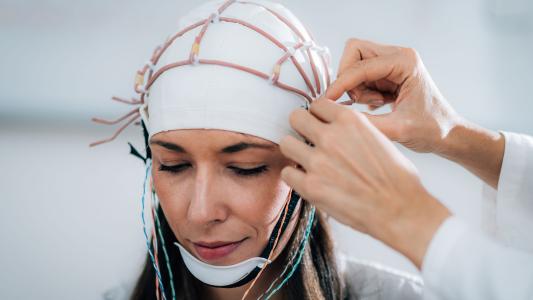Every year, emergency departments (EDs) in the U.S. treat about 30 million people for traumatic injuries.
By definition, these injuries are both sudden and severe — injuries caused by guns, car wrecks, etc. — and within a year of experiencing them, between 10% and 15% of survivors will develop post-traumatic stress disorder (PTSD).
Now, researchers have developed an algorithm that can predict which traumatic injury patients are at highest risk of developing PTSD — and in need of preventative treatment — before they even leave the ED.
Developing PTSD
The algorithm, detailed in the journal Nature Medicine, generates a single PTSD risk score for trauma patients based on 70 clinical data points associated with future development of the disorder (blood pressure, stress hormone levels, etc.) and a healthcare worker’s brief assessment.
“We selected measures that are routinely collected in the ED and logged in the electronic medical record, plus answers to a few short questions about the psychological stress response,” lead author Katharina Schultebraucks, an assistant professor of behavioral and cognitive sciences at Columbia University, said in a press release.
“The idea was to create a tool that would be universally available and would add little burden to ED personnel,” she added.
The researchers used data from 377 adult trauma survivors in Atlanta to develop the algorithm. They then used it to produce PTSD risk scores for 221 adult trauma survivors in New York City.
Ninety percent of the patients the algorithm categorized as being at risk of developing PTSD did, in fact, develop long-lasting symptoms within a year.
Of the patients who didn’t develop symptoms, the algorithm only categorized 5% as at risk — a relatively low false positive rate.
Path to Clinical Use
Though impressive, the algorithm does have its limitations.
For one, it missed quite a few future PTSD sufferers during the NYC testing: 29% of patients it categorized as “low risk” or “no risk” ended up developing PTSD within a year.
The earlier we can treat those at risk, the better the likely outcomes.
Katharina Schultebraucks
Furthermore, some of the clinical data points it analyzes are collected through blood testing — that means patients who don’t have blood drawn during their ED visit wouldn’t be able to benefit from it.
The algorithm will also need to be validated in tests with larger sample sizes before it could be deployed — but if it reaches that stage, there’s no telling how many people might benefit.
“For many trauma patients, the ED visit is often their sole contact with the health care system,” Schultebraucks said.
“The time immediately after a traumatic injury is a critical window for identifying people at risk for PTSD and arranging appropriate follow-up treatment,” she continued. “The earlier we can treat those at risk, the better the likely outcomes.”
We’d love to hear from you! If you have a comment about this article or if you have a tip for a future Freethink story, please email us at tips@freethink.com.
